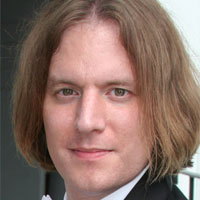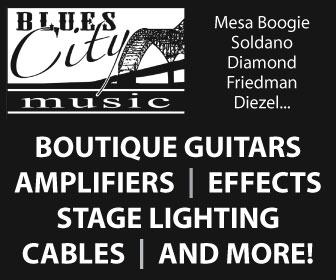Hsu-nami
From Mahwah By Way Of Taipei
Many bands try to find something unique about their style to help promote their music. It might be their look, their lifestyle or their background story. When the music itself is what makes the band unique, that creates something special.
New Jersey's Hsu-nami has your traditional rock-band string section, six here and four there. But it also has two strings, on lead performer Jack Hsu's Er-hu, a traditional Chinese instrument. With his classical background with the violin along with his training on the Er-hu and exposure to traditional Chinese music, Hsu has helped to create a true fusion of eastern and western musical tonalities. Based at Ramapo College in Mahwah, NJ, Hsu and band mates Brent Bergholm (lead guitar), Vinny Belcastro (guitar), Derril Sellers (bass), John Manna (drums) and Adam Toth (piano/synths) have played most of the area's traditional rock venues, and have been invited back to play one of the last sets ever at CBGBs' Downstairs Lounge when that legendary venues closes its New York location on September 30.
The band's track "Roguewave," was included on the 'Po Records' "ComPOlation Volume III" compilation CD and the Hsu-nami is planning to release their debut eight-song EP within the next month. As the bend's members prepare to complete their education at Ramapo, they are poised to take the band to new heights, expending their touring area and eventually being signed to release their first long-player. If anyone is able to bring the Er-hu to the masses of MTV watchers and iTunes downloaders the same way they've already conquered MySpace and Facebook, here they are.
Hsu, born in Taipei, Taiwan, learned the violin at four and before the age of ten was touring the United States with an orchestral group called VIP. He has performed at the New Jersey Performing Arts Center (NJPAC) and in 2000 played Carnegie Hall as part of the NYC Opera Orchestra program.
Bergholm is a nine-year veteran of the New Jersey music scene, having played in projects touching on the genres of metal, jazz, funk, hardcore, hip hop, and punk. His lead guitar playing style draws upon all of his influences and ranges from shredding to a bass-like tapping and slapping.
Chorus and Verse interviewed Hsu and Bergholm about their music, the recording process for the upcoming EP and plans for their remaining time at Ramapo and afterwards.
Let's start off by discussing your instrument, the Er-hu. Can you describe the Er-hu to our readers who might not be familiar with it? How did you first start playing and is the instrument that you perform with today traditional or has it been modified for the type of music you're making?
Jack: The Er-hu is the most common traditional instrument in China. It's a two string fiddle, also known as the "Chinese violin". When you go into a music store in China, you will find yourself in a maze of traditional Chinese instruments, mainly the Er-Hu. Funny thing is, the last time I went to China I only saw two acoustic guitars and one electric guitar in the entire store. It's completely different from music stores in America.
I started playing violin when I was four years old. I picked up the Er-Hu when I was in elementary school. I got really into the Erhu when I traveled to Nankin, China in 1998, a very famous place to study the instrument. While I was there, I had three teachers. I progressed quickly because I had such a strong background in classical violin. It helped me speed up the learning process.
I put a fisherman's violin pick-up on the Er-hu and a wireless system so I can walk around stage while I perform. The Er-Hu is a very delicate instrument because it's made for an acoustic only environment. The sound is so different with a fisherman's pick up. It gives the instrument a really high tone, so I have to use an EQ pedal on my pedal board to get a good sound. I also have a loop pedal, and a reverb module that vocalists usually use.
How does the Er-hu fit into the traditional rock band format? The Hsu-nami has two guitarists, bass and drums, along with keyboards, so you've already covered both your hook and groove elements. Do you use the Er-hu to solo over the melody or as part of the overall chord progression? Was it a challenge for your band members to integrate the Er-hu into their performance styles?
Jack: Well, the Er-hu is like the vocalist of the band. People who have never heard instrument before have told me that it sounds like a vocal singing. I mainly play the melodies and solos in different part of the songs, here and there.
Brent: It's not really much of a challenge at all. We see the Er-hu as the role of the vocalist. It takes the responsibilities of the melody, and hook. We approach song writing just like any other band. When it's all said and done, we let Jack write the melody. We usually try to convey certain feelings with each song, and then let Jack match the feeling with appropriate melodies. Also, I'm personally a fan of Asian music so playing with Jack is just like second nature for me.
Your Myspace page has an interesting comment that your "music is considered a backlash to the traditional Asian folk musicians in China." Can you elaborate on that point? What types of music were you exposed to growing up in Taipei and how would you describe the traditional and popular Chinese music scenes?
Brent: There aren't many Er-hu players doing what Jack does. The majority of them in China focus on playing old Chinese folk songs and classical pieces. There are other Er-hu players trying to do fusion, but they're playing more pop-influenced kind of music. Hsu-nami is taking the Er-hu and applying it to an American progressive rock band. Some songs are heavy and abrasive, and others are mellow and sweet. It's a backlash to the Traditional Asian Folk Musicians because Jack is playing something old in a modern way. It's truly east meets west.
Jack: Everything you see and hear in Taiwan has some kind of traditional Chinese influence. Everything, from pop music, television, to movie soundtracks, has a heavy influence from the traditional Chinese folk music.
The funny thing was that I was exposed to European classical music earlier in my age during my time in Taiwan, because I was taking violin lessons. I really got into the Chinese traditional music during my trip to China at 1998, and after a while I started listens to a lot of mainstream rock, classic rock, J-rock and a lot of world fusion music. It had a heavy influence in my song writing today.
Do you still maintain any ties or have family in Taiwan? Do you think that you'll make an effort to promote the Hsu-nami in Taiwan or mainland Chain and do you think there is an audience for your music outside of the United States?
Jack: Yes, I have families and friends in Taiwan who love Hsu-nami's music. They're trying to find ways to help us get some connections over there.
We are trying to book a tour In Taiwan either next summer or sometime in the future. I think the people over there would defiantly dig the music. People over there can relate to the instrument much more than people in America. I'm not saying that people in American can't appreciate it, it's just that they don't have the cultural connection like people in China would have. Also, the majority of Americans have never seen or heard an Er-hu before.
You recently opened for Matt O'Ree at The Stone Pony in Asbury Park, NJ. How was your experience performing at the Pony and where are some of your other favorite venues to play? Can you compare the difference between performing at a rock venue as opposed to being on stage at Carnegie Hall or the New Jersey Performing Arts Center (NJPAC)?
Jack: Oh, it is completely different. NJPAC and Carnegie Hall are majestic halls. I played in classical orchestras in those buildings. They have a lot of rules when you perform in places like that. You have to play a certain way, stand a certain way, and present yourself in a certain demeanor. Places like the Stone Pony, Lion's Den, The Saint, and CBGBs are completely different. I can have fun, hang out, and drink a few beers and rock out any way I want. There are no restrictions. It's so much more enjoyable to play, personally.
I can't imagine that there are too many new age fusion bands with influences from Chinese traditional music floating around the New York and New Jersey music scene. Do you find that people don't "get" what you're doing or don't know how to characterize it? Do you think that the band could also find a place in the blues or jazz genres if those fans were introduced to your sound?
Brent: [There are] definitely not many bands that sound like us in New Jersey. I think people are confused when they first hear the concept of the band, but when they see us live they get it 100%. I really love playing shows where the majority of the crowd doesn't know who Hsu-nami is. We win over the audience the second we kick into the set. It's fun to watch people's reaction to our music, and how much they get into it. We get a strong reaction from people because nobody has ever seen a band like this before. People appreciate originality and that's something we're trying to do. Probably some industry people might not know how to characterize us, but that's the beauty of the band. We don't try to mess around with labels and genres, we're all about breaking the mold and trying something different.
I think fans of blues and jazz would definitely appreciate the band. They would appreciate the song writing and musicianship. Also, some of the members of Hsu-nami have backgrounds in jazz and classical. That comes through in the way we play.
In addition to the Er-hu, you also play the violin, guitar, piano, cello and saxophone. How does having the ability to pick up and compose on so many different instruments affect your songwriting process? Do you find that your knowledge of one instrument can affect how you use another one and how do you decide when a song idea develops in your head if you want to explore it by sitting at the piano or holding a violin or guitar?
Jack: I basically write songs with my guitar and piano. I play around with different progressions and work the idea like a puzzle. Some sections fit together better than other sections. You just have to match the right pieces and you got yourself a perfect puzzle, or in my case, song. After the sections are done I record different instruments, and then write my melody with my Er-hu. After I'm done with that I take it to the band and we usually rearrange the song into the band version. It's cool to see what the band adds to my songs. After it's all said and done we have a great song on our hands.
You're currently attending Ramapo College of New Jersey majoring in music business while working towards being a professional music producer/musician/sound engineer. Do you see performing and producing music with Hsu-nami as good "real world" experience for being able to work in the industry once you're finished with school? Are there certain parts of making music, say working behind the faders in the studio or songwriting, that you especially enjoy and would like to make the focus of your career?
Jack: It definitely is a real-world experience, especially because we produce and record all our songs ourselves. Our bassist, Derril Sellers owns a professional $10,000 home recording studio, called "Lacuna Recording". There's a great luxury in having your own studio at your disposal. You don't have to worry about bad engineers, expensive session bills, and time constraints. We can take all the time in the world to have the song sound as good as we want.
I'm really precise when it comes to my ideas of what and how a song should sound like. I prefer my songs to be produced like a well-produced pop track. I want perfect timing and intonation. I prefer that to a raw first-take performance. Each member, however, has a different idea of what a song should sound like. Some like it well-produced, and others like it rawer. I think we get the best of both worlds, with a happy medium of raw energy and good production.
The most enjoyable thing for me in the studio is producing. Thinking of new ways to make the song sound different is fun. I always focus on what specific sections should sound like. Our bassist is the sound engineer, getting all the levels right and then eventually mixing the final product. The band members put their input in every section of the song. It's a good way to make things perfect, because you have six guys constantly coming out with new ideas.
After I graduate this winter I would like to be both the producer and sound engineer at recording studios.
How is the music scene at Ramapo College? Are there any cool places to catch a live show on or around campus and are there outlets where students can be exposed to different types of new music? Was there a reason that you selected Ramapo College as the best place to pursue your degree?
Brent: The music scene at Ramapo is pretty good. There are a lot of bands that come through to play shows. There aren't many all-Ramapo student bands, though. A lot of people have great bands, but usually only one or two members go to Ramapo. Hsu-nami is one of the few all-Ramapo student bands. There are four places where bands could play at the school: Friends Hall, Jay Lee's, the Band Shell, and the Basketball Stadium. Friend's Hall is like a banquet hall that's usually used for seminars, but can be used for live entertainment. Jay Lee's is a lounge where you can play pool and hang out. The Band Shell is outside and it's where graduation is held every year. If you're lucky, you get to play in the Basketball Stadium. That's where the big leaguers, like Reel Big Fish and Street Light Manifesto, play. The majority of the bands at Ramapo are punk bands. There aren't any bands at Ramapo like Hsu-nami. There aren't any bands like Hsu-nami period. Hsu-nami is one of a kind.
Jack: I went to Ramapo because I received a full scholarship. A full scholarship is hard to pass down, so I accepted. It was definitely the best decision I made my whole life, because if I didn't go to Ramapo then I wouldn't have met Brent, Vinny, John, Derril, and Adam. Hsu-nami wouldn't exist.
What are the band's plans for recording and releasing a debut album? You've blogged about plans for an eight-song EP coming out at the end of the summer. Are those plans still in the works and when do you expect that fans will be able to get their hands on it?
Brent: We're currently recording our eight-song EP at our bassist's home studio, Lacuna Recording. It was originally supposed to be ready by the end of summer, but things got pushed back. We're just about finished with everybody's parts and then we're going to mix it. Hopefully it'll be ready by the end of September or early October. The track listing is going be:
1. Rising of the Sun
2. Mimosa
3. Godfather
4. Interlude
5. Rogue Wave
6. Oh Beautiful Night
7. Entering the Mandala
8. Horse Race
As for a debut album, we're still trying to get signed. After we're done with this EP, we're probably going to have enough new material for two albums.
What else can we look forward to from the Hsu-nami in the near future? What are your plans for the duration of your time at Ramapo and where do you see your career progressing, both personally and with the band, after you complete your education?
Brent: It's hard to say what's in store for Hsu-nami in the future. Hopefully, we'll be signed to a relatively large label, and have lots of dedicated fans. I can definitely say that, as a band, we're going to work as hard as we can to achieve that goal. Our plans at Ramapo are to create a larger fan base. We also want to branch out and play other colleges like Columbia, NYU, Rutgers, and any others that want us. Hopefully, by the time we graduate more people will know about us, and we'll be on our way achieving our dreams of a dedicated fan base, and a record deal.
[ Website: www.hsu-nami.com ]

Matt Mrowicki founded Chorus and Verse in 2001. He is a rock star designer and technologist, Internet professional, content creator, and entrepreneur specializing in web development, IT consulting, branding, social media and online marketing. www.imprtech.com









